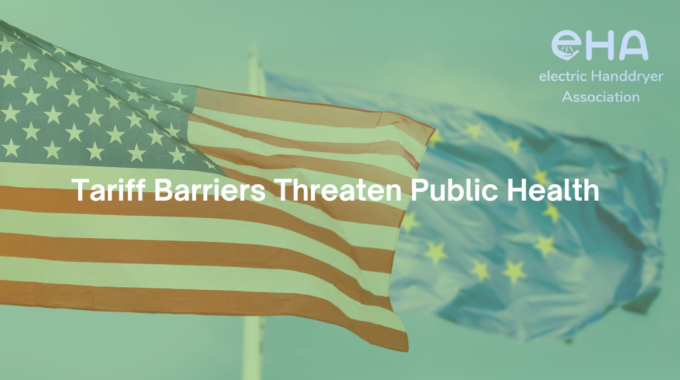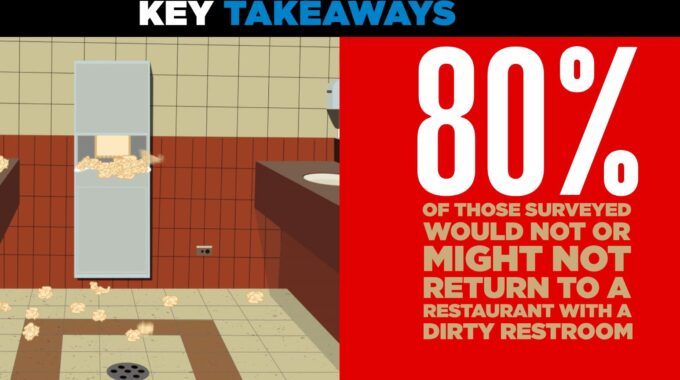By reducing or eliminating tariffs on clean and efficient technologies, both economies are affirming the role of trade policy in supporting climate and health outcomes.
Paper Towel Industry, Evidence-Based Policy-Making And Much More
The adventures of electric hand dryers over paper towels have been proved by various studies and convince an increasing number of customers. Modern electric hand dryers dry the user’s hands in less than ten seconds and, more importantly, they contribute to an effective way to save water, CO2-emissions and, on top of that, turn out to be a lot cheaper than paper towels in the long run. But still, the paper towel lobby keeps trying to stop this success story stating that using hand dryers were dangerous for your health.

The following articles from all over Europe reveal the paper towel industry’s attempts to defame new hand drying technology by means of questionable studies and rectify these imputations with independent data:
Germany, November/18/2017: “Will Brussels soon Ban the Electric Hand Dryer?“
Electric hand dryers are real “viral bombs” in the bathroom, states an article by ARS Technica UK. Economist, which has led the EU to consider a possible ban of electric handryers in public bathrooms. In his article the economist Fred Roeder questions this evaluation, stating that many other studies have come to a different conclusion about using electric hand dryers. Read full German article
Belgium, February/01/2018: “Vocal Europe -Political And Corporate Health Scares Are Irresponsible”
In his article Bill Wirts shows the negative effects of a study of University of Westminster in 2008, which states that for hygenic reasons the use of electric hand dryers should be avoided. The institute´s study, which was funded by the European Tissues Symposium (ETS), one of the biggest lobby groups of paper towel industry, has had a great effect on public policy decisions. Read the full article
Great Britain, December/14/2017: “Science Based Policy is a Sham“
Even though studies like these are financed by the paper towel lobby a have a great influence on public discussions and even on EU decision-makers. “‘Science Based Policy‘ is a sham“ by Ryan Khurana criticizes the European Commission for not having done sufficient scientific research in order to establish the Ecodesign Working Plan, a component of its clean energy strategy post-2020. While the four cited studies the report bases on concentrate especially on negative aspects of using electric hand dryers, they do not mention any study about the downsides of paper towels. In doing so they hold a clear position in favour of the latter product. Moreover the author points out that the paper towel industry is five times bigger than that of the electric hand dryers. Read more in his Spanish article
Italy: December/15/2017: “The Battle of Science Continues in Europe“
Studies published in the “Journal of Microbiology”, the Mayo Clinic and an article from the Pharmaceutical Microbiology Forum come to a contradictary conclusion. They did not find any significant difference in the level of microorganisms after hand drying with hot air compared to paper towels. It seems that the European Commission does not respect her own ethical claim of promiting evidence-based politics insofar as they do not take these facts under consideration – in order to conduct an impartial evaluation. Read the full Italian article
France: February/23/2018: “Scandal of electric hand dryers: a photo on Facebook is not a scientific proof“
Although these studies have been methodically insufficiently conducted, they have also a great effect on the public opinion, which shows a Facebook post uploaded by a young Californian woman that was shared around 5,000 000 times. She documented how she had placed a transparent box inside a Dyson Airblade electric hand dryer in a public toilet and posted the resulting photo, which fueled myths about hygienic problems with electric handdryers. Read the full French article
All in all there is the impression, that public opinion and, more importantly, European decision-making are subordinated to external pressures, where scientific investigation ends up being used as a strategically supporting tool for certain economic interests rather than for solving real ecological problems.


